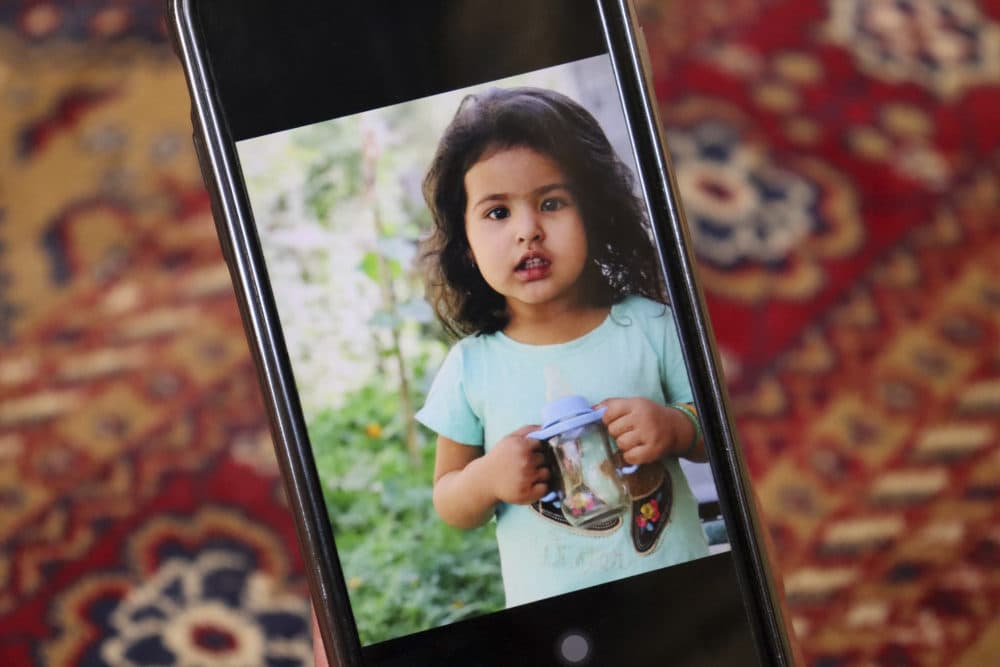Advertisement
Commentary
The True Toll Of 9/11

For each person who lost a family member or a friend on Sept. 11, 2001, the 20th anniversary stirs again the coals of their grief. So, too, for so many first-responders who survived their initial life-saving work, and have since died or been sickened by the poisonous rubble and air in which they immersed themselves.
We owe attention to all whose lives or health were sacrificed on 9/11. We owe it to all the military people killed or maimed from 2001 to the 13 U.S. troops last month, including Sgt. Nicole Gee, photographed so poignantly days before her own death, protectively holding an Afghani toddler. Two beautiful faces, his and hers, eye the camera as he rests in her arms.
We need to recollect and honor because when we do not, the loss for surviving kin and friends is compounded by the harshness of our neglect; we abandon them to an empty or bitter sense that death’s unbound violation lives on unseen. The Sept. 11 attacks killed 2,996 people; by 2018, another 10,000 people had been diagnosed with cancer from the toxins released by the attacks on the World Trade Towers.
But here’s a still harder truth: The 9/11 numbers, although far too large, are tiny beside the real death wake of the day. President George W. Bush and our nation responded to the terrorist attacks of 2001 by starting two destructive, futile wars: one that lasted from 2003 to 2011 in Iraq; and another from 2001 to 2021 in Afghanistan. I have met no one who feels these wars gained much ground for good. They caused terrible suffering.
The 9/11 numbers, although far too large, are tiny beside the real death wake of the day.
As of 2018, 6,591 American soldiers had died in the two conflicts and their spillover in Pakistan. An additional 7,820 U.S. contractors were killed. Another 53,700 soldiers and sailors are officially listed as wounded in the war zones. And, as of 2015, a separate study found 300,000 American soldiers with traumatic brain injuries. Then there are the uncountable cases of PTSD.
And while we naturally begin by trying to grasp the harm inflicted on our own citizens, if we want this 20th anniversary to have meaning, we must expand our sympathies beyond ourselves and our national borders.
However huge American losses, they are small beside the people killed by our vengefulness. According to scholars at the Watson Institute at Brown University, as of 2018, approximately 480,000 people, have been killed as a consequence of the two wars. This number includes 110,000 allied military and police, 110,000 citizens of Iraq and Afghanistan who fought against us, and at least 255,000 civilians.
Advertisement
Another 8 million (as of 2017) people in the two countries have been forced from their homes and homelands — refugees, their lives upended, diminished, torn, now forced to seek any safety and stability they can for their families and children.
The numbers are brain-numbing. And it’s easy to refuse their meaning. They are simply too big for emotional traction. Our minds flatten them, dry them into desiccated leaves and breezes blow them out of consciousness. But we have to resist such reflexes and try to imagine each survivor's grief and assume it is not unlike our own. When someone we love dies it churns us. A friend whose 95-year-old mother died in May wrote to me describing her enervation, disorientation and sense of being utterly lost, feelings she would not have anticipated after her mother’s long life.
Violent deaths provoked by terrorism and war, that foreshorten young lives — guns and bombs, torture and starvation, or the illnesses and hunger that overrun countries forced to host wars — bring particular agony. Only one of the 13 American soldiers killed last month was older than 25. (I do not know the ages of the scores of Afghans who died.) Gone for all are the free-flowing hours, days and years in which to unfurl themselves; the decades in which they might have labored, struggled and loved.
The numbers are brain-numbing ... Our minds flatten them, dry them into desiccated leaves and breezes blow them out of consciousness.
The world, as the philosopher Simone Weil said so exactly, is about force. She writes, "To define force — it is that x that turns anybody who is subjected to it into a thing." Whether we consciously want to or not, we have the reflex of turning “others” into things, of seeing faraway faces as gray cardboard masks. I imagine it helps us survive the world’s violence, but it also leaves unfueled our wishes to alter it.
Yet somewhere else in our mind, we do know that each killed person in Iraq and Afghanistan was someone whose death tore a gaping hole in a parent’s or child’s or lover’s heart; someone who left an empty bed, a poster on a wall, a photo in a wallet, a drawer of wrinkled clothes. Virtually all died before they wanted to, dropping armfuls of desires as they fell. Leaving half a million empty spaces.
I don’t believe there’s any easy hope. We are who we have long been. But hopelessness, like false hope, can become another form of arrogance. We have to continue to try to nudge ourselves toward humaneness. I am certain Nicole Gee knew the Afghani toddler she cradled was a beloved child, not a thing. As was Gee, herself. Let us honor her — and all who died on Sept. 11 and since — by reflecting frankly on the centrality in our lives of force, and then trying to picture a human community less dedicated to turning others into things.
